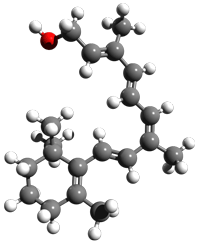Melanoma risk and vitamin A intake
Supplemental vitamin A intake may be associated with a reduced risk of developing melanoma, according to a study published online this week in the Journal of Investigative Dermatology. The research suggests that taking supplements of retinol, a form of vitamin A, could hold promise as a chemoprotective agent against melanoma.

Retinol is present in foods of animal origin such as liver, eggs, and milk, and has been shown to affect cell differentiation and proliferation.
Previous research in mouse models has shown that retinol and related compounds can decrease tumour size and improve survival in melanoma. Maryam Asgari and colleagues analyzed melanoma risk in 69,635 people who consumed vitamin A through dietary or supplemental methods.
The data suggests that intake of individual retinol supplements is associated with a significant reduction in melanoma risk. This protective effect seems to be specific to retinol, as intake of carotenoids, related compounds, was not associated with a reduction in melanoma risk.
No relationship between melanoma risk and dietary consumption of vitamin A was observed. The authors suggest that gender and sun exposure may also affect how retinol might prevent melanoma, as there were stronger protective effects in women and in sun-exposed sites.
Reference
- Asgari, M. M., Brasky, T. M., White, E. (2012). Association of vitamin A and carotenoid intake with melanoma risk in a large prospective cohort Journal of Investigative Dermatology DOI: 10.1038/jid.2012.21
Keywords: vitamin A, melanoma, retinol
1. 3. 2012 ecancer.org



